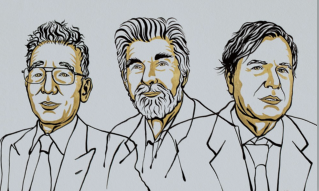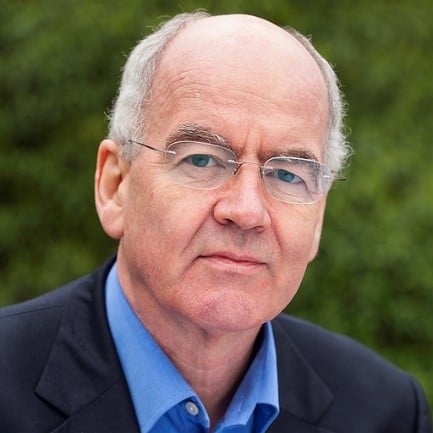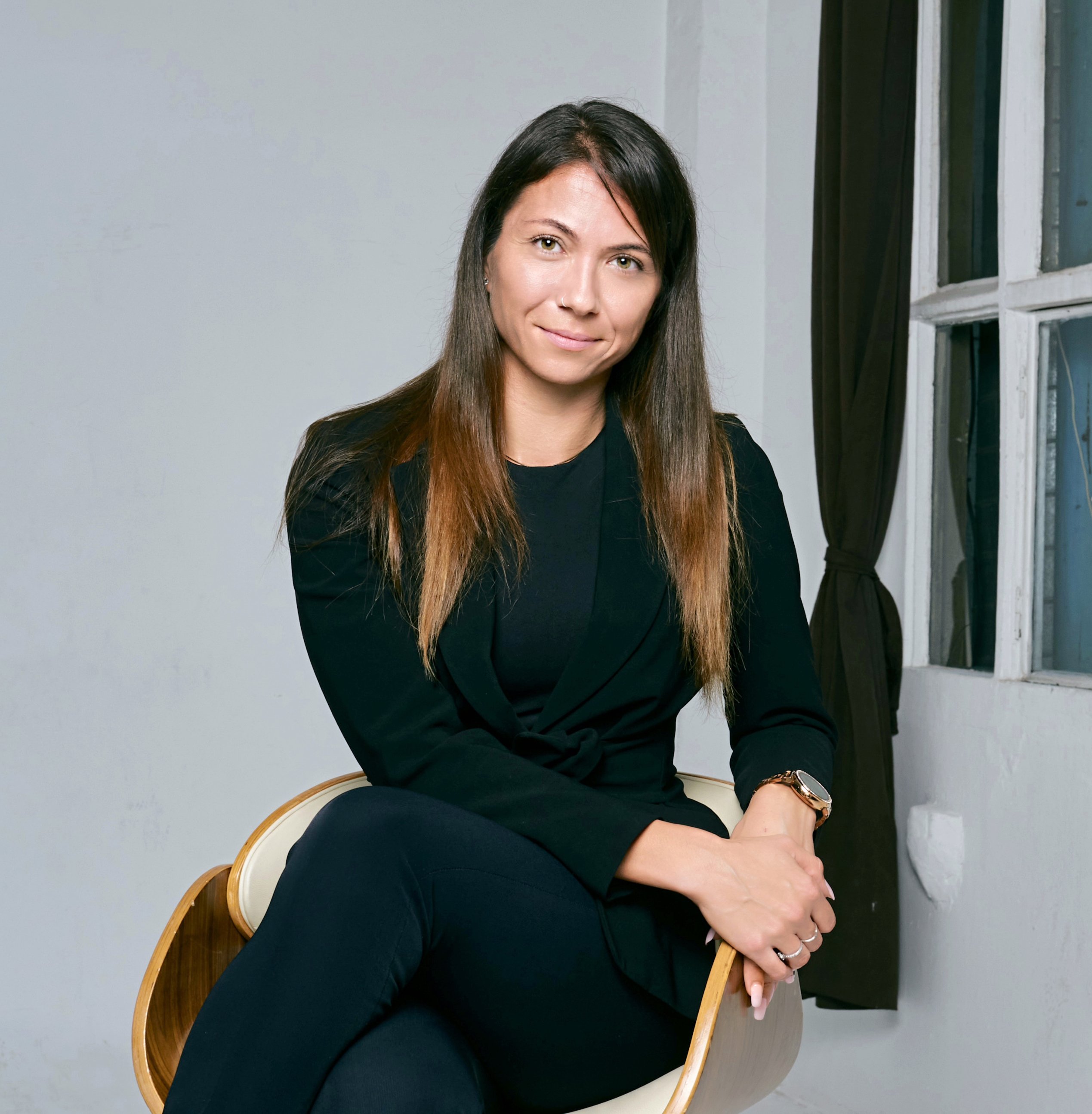
Journal Menu
► ▼ Journal Menu-
- Sustainability Home
- Aims & Scope
- Editorial Board
- Reviewer Board
- Topical Advisory Panel
- Instructions for Authors
- Special Issues
- Topics
- Sections & Collections
- Article Processing Charge
- Indexing & Archiving
- Editor’s Choice Articles
- Most Cited & Viewed
- Journal Statistics
- Journal History
- Journal Awards
- Society Collaborations
- Conferences
- Editorial Office
Journal Browser
► ▼ Journal BrowserNeed Help?
Announcements
22 November 2021
722 MDPI Editorial Board Members Receiving "2021 Highly Cited Researchers" Distinction
It is our great honor to congratulate the Editorial Board Members and Editors in MDPI's journals who have been distinguished as 2021 Highly Cited Researchers by Clarivate, according to Web of Science data. We herewith express our gratitude for the immense impact the named researchers continue to make on scientific progress and on our journals' development.
Clarivate's annual list of Highly Cited ResearchersTM identifies the most highly cited scientists for the past decade. Their impactful papers are among the top 1 per cent in the citation distribution of one or more of 22 fields analyzed in the "Essential Science Indicators", distinguishing them as hugely influential among their peers.
| Abate, Antonio Abatzoglou, John T. Abbaszadeh, Mostafa Acharya, U. Rajendra Acharya, Viral V. Agarwal, Ravi P. Ahn, Myung-Ju Airoldi, Laura Ali, Imran Allakhverdiev, Suleyman I. Aluko, Rotimi E. Anasori, Babak Andersson, Dan I. Andes, David Anker, Stefan D. Apergis, Nicholas Ariga, Katsuhiko Arqub, Omar Abu Aschner, Michael Assaraf, Yehuda G. Astruc, Didier Atala, Anthony Atanasov, Atanas G. Atangana, Abdon Bahram, Mohammad Bakris, George L. Balandin, Alexander A. Baleanu, Dumitru Balsamo, Gianpaolo Bando, Yoshio Banks, William A. Bansal-Travers, Maansi Barba, Francisco J. Barros, Lillian Basit, Abdul W. Baskonus, Haci Mehmet Bassetti, Matteo Battino, Maurizio Bell, Jordana T. Bellomo, Nicola Benediktsson, Jon Atli Benelli, Giovanni Benjakul, Soottawat Bhatnagar, Amit Biddle, Stuart J. H. Biondi, Antonio Biondi-Zoccai, Giuseppe Bjarnsholt, Thomas Blaabjerg, Frede Blaschke, Thomas Blay, Jean-Yves Blumwald, Eduardo Blunt, John W. Boffetta, Paolo Bogers, Marcel Bonomo, Robert A. Bowman, David M.J.S. Boyer, Cyrille Brestic, Marian Brevik, Eric C. Buhalis, Dimitrios Burdick, Jason A. Byrd, John C. Cabeza, Luisa F. Cai, Xingjuan Cai, Jianchao Calhoun, Vince D. Calin, George Cao, Jinde Cao, Guozhong Carvalho, Andre F. Castellanos-Gomez, Andres Cerqueira, Miguel Ângelo Parente Ribeiro Chang, Jo-Shu Chang, Chih-Hao Chastin, Sebastien Chau, Kwok-wing Chemat, Farid Chen, Xiaobo Chen, YangQuan Chen, Jianmin Chen, Chaoji Chen, Min Chen, Qi Chen, Jun Chen, Xi Chen, Peng Chen, Yulin Chen, Bo Chen, Chen Chen, Zhi-Gang Chen, Wei-Hsin Chen, Gang Chen, Yongsheng Chen, Xiang Chen, Yimin Chen, Runsheng Chen, Lidong Chen, Shaowei Chen, Qian Chen, Yu Chen, Shuangming Chiclana, Francisco Cho, Sun Young Choi, Wonyong Chowdhary, Anuradha Choyke, Peter L. Cichocki, Andrzej Corella, Dolores Corma, Avelino Cortes, Javier Cortes, Jorge Costanza, Robert Crommie, Michael F. Cui, Yi Cui, Haiying Cui, Qinghua Cummings, Kenneth Michael Dai, Shifeng Dai, Sheng Daiber, Andreas Davis, Steven J. Dawson, Ted M. de la Fuente-Nunez, Cesar Decker, Eric Andrew Dekel, Avishai Demaria, Marco Deng, Yong Deng, Xiangzheng DePinho, Ronald A. Desneux, Nicolas Dimopoulos, Meletios-Athanasios Ding, Aijun Dionysiou, Dionysios D. Dokmeci, Mehmet Remzi Dolgui, Alexandre Dong, Fan Dou, Shi Xue Dou, Letian Du, Qian Du, Bo Dube, Shanta Rishi Dufresne, Alain Dummer, Reinhard Dupont, Didier Edwards, David Elaissari, Abdelhamid Elhoseny, Mohamed Ellahi, Rahmat Ellis, Erle C. ElMasry, Gamal Esteller, Manel Estévez, Mario Fabbro, Doriano Facchetti, Antonio Fan, Zhanxi Fang, Chuanglin Fasano, Alessio Fečkan, Michal Felser, Claudia Feng, Liangzhu Fensholt, Rasmus Ferdinandy, Péter Fernandez-Lafuente, Roberto Ferreira, Isabel C. F. R. Filippi, Massimo Fisher, Helen Fortino, Giancarlo Fosso Wamba, Samuel Franceschi, Claudio Fujita, Hamido Fujita, Masayuki Gai, Francesco Gaisford, Simon Galanakis, Charis M. Galluzzi, Lorenzo Galvano, Fabio Gan, Ren-You Gan, Lihua Gandomi, Amir H. Gao, Bin Gao, Feng Gao, Minrui Gao, Huijun Gao, Wei Gao, Huile Garbe, Claus Garcia, Hermenegildo Gasbarrini, Antonio Gasco, Laura Gautret, Philippe Geng, Yong Gerdts, Gunnar Geschwind, Daniel H. Ghadimi, Noradin Ghaffari, Roozbeh Ghamisi, Pedram Giampieri, Francesca Glick, Bernard R. Gnant, Michael Goel, Ajay Gogotsi, Yury Goldewijk, Kees Klein Gong, Jinlong Gong, Yongji Govindan, Kannan Granato, Daniel Grancini, Giulia Green, Douglas R. Grosso, Giuseppe Gu, Ke Guan, Cao Guastella, Adam J. Guerrero, Josep M. Gui, Guan Guizani, Mohsen Guo, Zaiping Gupta, Rangan Gutzmer, Ralf Haase, Dagmar Habibi-Yangjeh, Aziz Hagemann, Stefan Hagger, Martin Hamblin, Michael R. Hammoudeh, Shawkat Han, Heesup Hanes, Justin Harrison, Roy M. Hartung, Hans-Peter Hasanuzzaman, Mirza He, Jr-Hau He, Hongwen He, Jiaqing He, Debiao Henseler, Jörg Herrera, Francisco Herrera-Viedma, Enrique Hetz, Claudio Ho Kim, Jung Holmes, Elaine Hossain, Ekram Hsueh, Po-Ren Hu, Xiaosong Hu, Wenbin Huang, Jianping Huang, Hongwei Huang, Yu Huang, Jianying Huang, Peng Huang, Baibiao Huang, Shaoming Hubacek, Klaus |
Iqbal, Hafiz M. N. |
Saad, Fred |
The full list of 2021 Highly Cited Researchers can be accessed at the following webpage in the Web of ScienceTM https://recognition.webofscience.com/awards/highly-cited/2021/.
--- Highly Cited Researchers (HCR) is a Clarivate product.
16 November 2021
Topical Advisory Panel Established to Support Editorial Board
Academic editors play a crucial role in leading our journals and ensuring that each article undergoes a robust and timely peer-review. With the launch of Topics this year and addition of Topic Editors to our family of academic editors, we decided it would be a good time to restructure our academic boards, thus providing more clarity and support for each role. MDPI is pleased to announce the launch of a new position—Topical Advisory Panel Member, that will replace the previous position of Topics Board Member. The Topical Advisory Panel will be comprised of early career researchers eager to gain experience in editorial work.
The main responsibility of the new members of the Topical Advisory Panel is to regularly provide support to Guest Editors, Topic Editors, and Section Board Members. The responsibilities of the Topical Advisory Panel are available here: https://www.mdpi.com/editors.
Each year, the members’ performances are evaluated, and outstanding members are promoted to the Editorial Board by the Editor-in-Chief.
To qualify as a Topical Advisory Panel Member, applicants must:
- Have expertise and experience in the field related to the journal;
- Have received a Ph.D. in the last 10 years, approximately;
- Have at least 6-8 published papers in the last 5 years as first author or corresponding author;
- Currently hold an independent research position in academia or a government institute.
If you are interested in this role, please contact the editorial office by email.
We look forward to hearing from you soon.
25 October 2021
Open Access Week 2021 | It Matters How We Open Knowledge: Building Structural Equity, 25–31 October

Founded in 1996, MDPI was one of the first fully Open Access publisher. Over 25 years MDPI has grown to become the largest Open Access publisher globally, publishing over 160,000 articles across more than 350 journals in 2020. At the core, MDPI was founded in response to a pressing need of fast publication and inclusion. The scholar was set at the centre of the publication process for the first time. Acting as a service provider, rather than a product provider, MDPI exists to help scientists achive their objective to disseminate research results. At MDPI, we believe scientists deserve a better service from the publishing world.
The International Open Access Week (Open Access Week), founded by the SPARC (the Scholarly Publishing and Academic Resources Coalition) Alliance and student partners in 2008, has been successfully running for 13 years. As an advocate and pioneer of open access publishing, MDPI actively responds to the call of International Open Access Week. This year’s theme of “It Matters How We Open Knowledge: Building Structural Equity” highlights the Recommendation’s call for equitable participation from all authors and readers.
For the last 25 years, MDPI has been committed to disseminating open research. Here is a video showing MDPI’s Commitment to Equity, Inclusion and Diversity for More than 25 Years.
International Open Access Week is an important opportunity to catalyze new conversations, create connections across and between communities that can facilitate this co-design, and advance progress in the building of more equitable foundations for opening knowledge—discussions and actions that need to be continued, year in and year out. MDPI has always aimed to provide professional and efficient publishing services to scholars around the world.
Our mission is to make scientific research accessible to everyone; this year, we interview and hold discussions with open science ambassadors on how to build an equal and inclusive environment for open science. Academic editors help us collaborate with more institutions to advocate for open access ideas.
Besides this, our scientific community is a key driver of our success and MDPI’s remarkable growth. Despite the pandemic, we have prepared online conferences and workshops to gather scholars from different communities.
The Basel Sustainable Publishing online forum provides an equal opportunity for stakeholders and researchers from multi-cultural environments to exchange ideas and eliminate barriers to participation.
Conference date: 25 October 2021, online
Conference website: https://bspf2021.sciforum.net/
Main topics: MDPI discusses the current dilemma of open access science from various perspectives such as governments, libraries, and publishers, and related measures on how to change the status quo of discrimination from a global perspective.
We aim to support equality, inclusion, diversity, and accessibility in scholarly communications. We collaborate with universities and key laboratories and have scholarly communications with researchers, teachers, and students on open access workshops.

- 25 October 2021
Energies journal and Institute of Mechanics, Chinese Academy of Sciences
- 28 October 2021
Machines journal and State Key Laboratory of Traction Power, Southwest Jiaotong University
- 29 October 2021
Processes journal and Beijing Institute of Technology
- 29 October 2021
Coatings journal and Wuhan University of Technology
MDPI is committed to providing open access and high-quality publishing services for scholars and promoting rapid dissemination of academic achievements. We hope to promote the practices and policies of open access publishing and diversify the dissemination of academic achievements.
5 October 2021
Nobel Prize in Physics 2021 Jointly Awarded to Three Scientists for Shedding Light on Anthropogenic Climate Change and Other Complex Phenomena
The Nobel Prize in Physics 2021 was awarded to Syukuro Manabe, Klaus Hasselmann and Giorgio Parisi. One half of the prize was awarded jointly to Professor Manabe and Professor Hasselmann for the physical modelling of Earth’s climate, quantifying variability and reliably predicting global warming, according to the Nobel Prize committee, while the other half of the prize went to Professor Parisi for the discovery of the interplay of disorder and fluctuations in physical systems from atomic to planetary scales. The three physicists contributed to the understanding of chaotic and apparently random phenomena.

Manabe, Hasselmann, Parisi (from left to right) © Nobel Media
"The discoveries being recognised this year demonstrate that our knowledge about the climate rests on a solid scientific foundation, based on a rigorous analysis of observations. This year’s Laureates have all contributed to us gaining deeper insight into the properties and evolution of complex physical systems", said Thors Hans Hansson, chair of the Nobel Committee for Physics.
Manabe and Hasselman laid the foundations for the climate models used by scientists today. They were among the first to distinguish between climate phenomena on the one hand and random occurrences of the weather on the other hand, and to assess the impact of human activities on the climate from the beginning of the 20th century.
Parisi's novel studies involved identifying hidden patterns in disordered complex materials called spin glasses, a special type of metal alloy in which iron atoms, for example, are randomly mixed into a grid of copper atoms. He constructed a mathematical description of the apparently random behavior of spins. His findings not only impacted physics, but also mathematics, biology, neuroscience and machine learning, because these felds include problems which are related to so-called geometrical frustration.
We send our congratulations to the Nobel Laureates, especially to Giorgio Parisi, who was a one-time author in Entropy (with Juan J. Ruiz-Lorenzo et al.): “Spin Glasses in a Field Show a Phase Transition Varying the Distance among Real Replicas (and How to Exploit It to Find the Critical Line in a Field)”.
28 September 2021
Meet Us at the Advanced Membrane Technology Summit for Water Treatment 2021, Shanghai, China, 15–17 October 2021

MDPI will be attending the Advanced Membrane Technology Summit for Water Treatment 2021, jointly hosted by the International Water Association (IWA), China Regional Office and Tongji University, which will be held from 15 to 17 October 2021, in Shanghai, China.
Famous domestic and foreign experts will give keynote speeches during the conference, in addition to poster exhibitions, postgraduate seminars and other academic activities. This summit is focused on the theme of "Sustainable Development of Membrane Water Treatment Technology under the Background of Carbon Peak and Carbon Neutrality". Topics covered by the summit include, but are not limited to, membrane water and wastewater treatment, new theories of membrane processes, advanced membranes and membrane modules, advanced membrane processes and combined processes, sustainable membrane water treatment technologies, and the industrial application of membrane technology.
The following MDPI journals will be represented:
- Membranes;
- Separations;
- IJERPH;
- Applied Sciences;
- Water;
- Toxics;
- Resources;
- Sustainability;
- ChemEngineering.
If you are also attending this conference, please feel free to stop by our booth. Our delegates look forward to meeting you in person to answer any questions you may have. For more information about the conference, please visit:
24 September 2021
Meet Us at the 21st Chinese Zeolite Conference (21 CZC) in Qingdao, China, 27–30 September 2021

MDPI will be attending the 21st Chinese Zeolite Conference (21 CZC), hosted by the Chinese Zeolite Association and China University of Petroleum, which will be held from 27 to 30 September 2021 in Qingdao, China. The conference will be held at the International Conference Center of China Railway Qingdao World Expo City. More than 1500 delegates are expected to attend.
The theme of this conference is “Porous Materials and Future Energy”. The conference aims to show the latest progress in the field of zeolite and porous material in China and discuss the responsibilities, opportunities, and challenges in zeolite and related porous functional material chemistry in the new era of energy reform and sustainable development. We also aim to further promote the development and achievements of zeolite science and technology.
The main topics of the conference include: the synthesis, modification, and characterization of porous zeolite materials; host-guest chemistry and functional materials; adsorption, separation, and diffusion performances; porous material catalysis and chemical processes; theoretical calculations and simulations of porous material properties, structures, and applications.
The following MDPI journals will be represented:
- Molecules;
- Separations;
- Energies;
- Crystals;
- Materials;
- Membranes;
- Inorganics;
- Sustainability;
- Sustainable Chemistry;
- Symmetry;
- Reactions.
If you are also attending this conference, please feel free to stop by our booth (#B20). Our delegates look forward to meeting you in person to answer any questions you may have. For more information about the conference, please visit https://www.chemsoc.org.cn/meeting/21czc/.
23 September 2021
2020 MDPI Top Reviewer Award—Winners Announced

Rigorous peer-review is the cornerstone of high-quality academic publishing. Over 369,916 scholars served as reviewers for MDPI journals in 2020. We are extremely appreciative of all those who made a contribution to the editorial process in this capacity. At the beginning of every year, journal editorial offices publish a list of all reviewers’ names to express our gratitude. In addition, this year, the MDPI Top Reviewer Award was announced, to recognize the very best reviewers for their expertise and dedication, and their high-quality, and timely review reports. We are pleased to announce the following winners of the 2020 MDPI Top Reviewer Award:
- Adriana Burlea-Schiopoiu;
- Alban Kuriqi;
- Álvaro González-Vila;
- Alessandro Alaimo;
- Alexey Beskopylny;
- Alexander Yu Churyumov;
- Alberto Fernández-Isabel;
- Andrea Mastinu;
- Antonios N. Papadopoulos;
- Anton Rassõlkin;
- Antonio Humberto Hamad Minervino;
- Arkadiusz Matwijczuk;
- Artur Słomka;
- Baojie He;
- Bartłomiej Potaniec;
- Bojan Đurin;
- Camilo Arturo Rodriguez Diaz;
- Carmelo Maria Musarella;
- Chiachung Chen;
- Chiman Kwan;
- Cristian Busu;
- Danil Pimenov;
- Dan-Cristian Dabija;
- Delfín Ortega-Sánchez;
- Demetrio Antonio Zema;
- Denis Butusov;
- Elena Lucchi;
- Gaurab Dutta;
- Livia Anastasiu;
- M. R. Safaei.
For more information about how to become a reviewer of MDPI journals, please see: www.mdpi.com/reviewers.
22 September 2021
MDPI Joins SDG Publishers Compact

UN's 17 Sustainable Development Goals (SDGs) are the blueprint to achieve a better and more sustainable future for all. In 2020 the SDG Publishers Compact was launched, aimed to inspire publishers and accelerate progress to achieve the 17 goals by 2030. Members of the programme are committed to support the publication of materials that will promote and inspire actions towards SDGs.
MDPI is an eager advocate of SDGs and has already been supporting the programme by creating Special Issues and publishing a series of books on SDGs prior to joining the Compact in 2021. MDPI's Sustainability Foundation initiated the World Sustainability Awards in 2016. We fully support UN's goals to promote sustainable actions that make the world a better place for all and, as part of its commitment, we will focus our actions on SDG10: Reduced Inequalities whilst promoting all 17 SDGs. For more details, please visit the programme’s website: https://www.un.org/sustainabledevelopment/sdg-publishers-compact/.
Joining this initiative was a unanimous decision. MDPI has in its core values the dissemination of science for all, breaking the wall between research access and under-represented members of the scientific community and the general population. To support this initiative further and continue to support under-represented scientists, MDPI will take a series of actions that will be announced once ready.
The first action MDPI takes is to nominate Dr. Liliane Auwerter as the coordinator of the programme. Dr. Auwerter studied Environmental Process Technology (UTFPR, Brazil), obtained her MSc degree in Water and Environmental Engineering (University of Surrey, UK) and in 2020 completed her PhD in self-healing low-friction materials for water transport (Imperial College London, UK), always focusing on diverse scientific projects that would potentially bring sustainability to industrial processes. As a student in Brazil, she engaged in volunteering activities focused on environmental education and took part in the Millennial Development Goals meetings held at the university.
For more information, please contact:
Dr. Liliane Auwerter
Scientific Officer
liliane.auwerter@mdpi.com
18 September 2021
Topic “Soil Fertility and Plant Nutrition for Sustainable Agriculture”—Open for Submission

We are pleased to announce the Topic “Soil Fertility and Plant Nutrition for Sustainable Agriculture” (https://www.mdpi.com/topics/Fertility_Nutrition_Agriculture).
This collection invites contributions on new agricultural practices that maintain or restore soil life and fertility; new methods and technologies for mineral and organic feeding and plant fertilization; new sources of, and processes for, providing healthy food without negative impacts on the soil; the use of cultivars that efficiently valorize soil resources; and the use of plant cover or crop associations. Contributions concerning biocontrol and soilborne disease are also welcome.
The relevant journals are Horticulturae, Plants, Agronomy, Agriculture, and Sustainability. The submission deadline is 31 December 2022. Contributions to the topic are welcome.
13 September 2021
Announcing the Recipients of the 2021 World Sustainability Award and Emerging Sustainability Leader Award
The MDPI Sustainability Foundation is pleased to announce the recipients of the 2021 World Sustainability Award and Emerging Sustainability Leader Award. The recipients were selected from the nominations received over the course of the year, and were voted by the Selection Committee made up of the two permanent members: Dr. Shu-Kun Lin, founder and President of MDPI and founder and chairman of the MDPI Sustainability Foundation, and Prof. Dr. Ed Constable, former Vice President for Research of the University of Basel; as well as two non-permanent members: Prof. Dr. Manfred Max Bergman, Section Editor-in-Chief of the Sustainability journal, and Dr. Mathis Wackernagel, President of Global Footprint Network.
Nominees for the World Sustainability Award may be individual researchers or groups of researchers, whereas the nominees for the Emerging Sustainability Leader Award are individual researchers aged 40 or under at the time of the submission deadline. The awardees must have made, and continue to make, a unique and outstanding academic or societal contribution to sustainability in general or to a sustainability-relevant issue in particular.
The World Sustainability Award and the Emerging Sustainability Leader Award are granted according to merit and impact, without any discrimination based on gender, race, religion, nationality, or political affiliation.
About the World Sustainability Awards
The World Sustainability Award was established in 2017 by the MDPI Sustainability Foundation to encourage new initiatives and developments in sustainability and is conferred to individual researchers or research teams who have made an outstanding academic or societal contribution to sustainability in general, or to a sustainability-relevant issue in particular.
The past recipients of the World Sustainability Award are Prof. Dr. Jeffrey D. Sachs and Dr. Sonia Ehrlich Sachs (2017), Dr. Mathis Wackernagel and Dr. Zhifu Mi (2018), and Prof. Dr. Michael E. Mann and Dr. Antonella Santuccione Chadha (2020).
The past recipients of the Emerging Sustainability Leader Award are Dr. Esther Ngumbi and Dr. Xiaosong Hu (2017), Dr. Bradley Hiller and Dr. Xiadong Zhang (2018), and Dr. Jing Meng and Dr. Natalia Mykhaylova (2020).
Recipients of the 2021 World Sustainability Award
We are happy to announce that the recipients of the 2021 World Sustainability Award are Prof. Dr. John Elkington and Prof. Dr. Jianguo Liu. The award is recognized with a sum of USD 100’000 to be divided equally between the two awardees. The World Sustainability Award prize money is entirely funded by the MDPI Sustainability Foundation.
About Prof. Dr. John Elkington
Current affiliation: Volans, UK
 Professor Elkington is a world-renowned author, advisor, and entrepreneur who has advocated and promoted sustainability for more than four decades. He is Visiting Professor at the Doughty Centre for Corporate Responsibility, Cranfield School of Management, Imperial College, and University College London (UCL). Over the years, he has promoted sustainable development as an advisor to many governments, business, and civic institutions around the world. In 2008 he became the Co-founder and Chairman of Volans, a think tank and “future-focused business working at the intersection of sustainability, entrepreneurship and innovation”. One of his most significant contributions to the field of sustainability was the introduction of the triple bottom line in his 1997 book entitled Cannibals with Forks: The Triple Bottom Line of 21st Century Business. The concept of the triple bottom line, which promotes the idea that business should balance economic pursuits with social and environmental outcomes, has by now become a gold standard within the field of sustainability. Notably, it has been used as the benchmark for the development of global initiatives such as The UN Global Compact, the Global Reporting Initiative, and the UN Sustainable Development Goals (SDGs).
Professor Elkington is a world-renowned author, advisor, and entrepreneur who has advocated and promoted sustainability for more than four decades. He is Visiting Professor at the Doughty Centre for Corporate Responsibility, Cranfield School of Management, Imperial College, and University College London (UCL). Over the years, he has promoted sustainable development as an advisor to many governments, business, and civic institutions around the world. In 2008 he became the Co-founder and Chairman of Volans, a think tank and “future-focused business working at the intersection of sustainability, entrepreneurship and innovation”. One of his most significant contributions to the field of sustainability was the introduction of the triple bottom line in his 1997 book entitled Cannibals with Forks: The Triple Bottom Line of 21st Century Business. The concept of the triple bottom line, which promotes the idea that business should balance economic pursuits with social and environmental outcomes, has by now become a gold standard within the field of sustainability. Notably, it has been used as the benchmark for the development of global initiatives such as The UN Global Compact, the Global Reporting Initiative, and the UN Sustainable Development Goals (SDGs).
About Prof. Dr. Jianguo Liu
Current affiliation: Center for Systems Integration and Sustainability, Michigan State University, USA
 Jianguo “Jack” Liu is a world leader in systems integration and sustainability (e.g., integrating ecology with social sciences, policy, and technologies for understanding and promoting global sustainability). He holds the Rachel Carson Chair in Sustainability, and is University Distinguished Professor and founding director of Center for Systems Integration and Sustainability at Michigan State University (USA). He has translated many research findings to effective policy and management for global sustainability, especially in China. Furthermore, he has amplified the impacts through helping numerous others. Liu’s pioneering research has opened up new frontiers in sustainability and greatly advanced the fundamental understanding of global challenges. He coined the integrated concept of telecoupling (socioeconomic-environmental interactions over distances), and has been leading the development and applications of the award-winning telecoupling framework. This framework helps disentangle the complexity of globalization and systematically expand sustainability science from focus on specific places separately to human-nature interactions across distant places. It provides a powerful tool to uncover hidden impacts of human activities within specific places on sustainability elsewhere. Many of his research findings have been translated into effective policies and management interventions, which have helped the recovery of a global wildlife icon (giant pandas), improved management of protected areas, and revolution of China’s environmental protection.
Jianguo “Jack” Liu is a world leader in systems integration and sustainability (e.g., integrating ecology with social sciences, policy, and technologies for understanding and promoting global sustainability). He holds the Rachel Carson Chair in Sustainability, and is University Distinguished Professor and founding director of Center for Systems Integration and Sustainability at Michigan State University (USA). He has translated many research findings to effective policy and management for global sustainability, especially in China. Furthermore, he has amplified the impacts through helping numerous others. Liu’s pioneering research has opened up new frontiers in sustainability and greatly advanced the fundamental understanding of global challenges. He coined the integrated concept of telecoupling (socioeconomic-environmental interactions over distances), and has been leading the development and applications of the award-winning telecoupling framework. This framework helps disentangle the complexity of globalization and systematically expand sustainability science from focus on specific places separately to human-nature interactions across distant places. It provides a powerful tool to uncover hidden impacts of human activities within specific places on sustainability elsewhere. Many of his research findings have been translated into effective policies and management interventions, which have helped the recovery of a global wildlife icon (giant pandas), improved management of protected areas, and revolution of China’s environmental protection.
Recipients of the 2021 Emerging Sustainability Leader Award
We are happy to announce that the recipients of the 2021 Emerging Sustainability Leader Award are Dr. Lela Mélon and Prof. Dr. Anet Režek Jambrak. The award is recognized with a sum of USD 20’000 to be divided equally between the two awardees. The Emerging Sustainability Leader Award prize money is entirely funded by the MDPI journal Sustainability.
About Dr. Lela Mélon

Current affiliation:
1) ESCI-UPF: Academic director of the Postgraduate Course in Sustanability Transition Management and Climate Emergency; Professor of Sustainability in Business Law
2) UPF: Executive Director of the Planetary Wellbeing Institutional Framework.
From the beginning of her academic career, Dr. Mélon has been focusing on path-breaking insights into corporate sustainability, arguing against a noncritical application of the shareholder primacy in the light of environmental and social sustainability challenges the corporate sector poses. With the SCOM project, Dr. Mélon achieved a remarkable impact with her work in academia and beyond, connecting the private and the public sector, opening science to broader society and created far-reaching strategic connection, which have been further fostered all up to today. She devoted her time and efforts to place sustainability as a guiding principle in the field of higher education and brought together the private and public sector through her work, assuring that the scientific findings are aligned with the needs of the society as a whole.
About Prof. Dr. Anet Režek Jambrak

Current affiliation: Faculty of Food Technology and Biotechnology, University of Zagreb
Anet Režek Jambrak is a Professor from the Faculty of Food Technology and Biotechnology of the University of Zagreb, Croatia. She is also a scientific advisor in food engineering (biotechnical sciences). From 2019, she founded the Laboratory for Sustainable Development at the Faculty of Food Technology and Biotechnology. She is member of Global Young Academy (GYA), European Union of Food Science and Technology (EFFoST) and International Academy of Food Science and Technology (IAFoST). Her field of research is food chemistry, food physics, nonthermal processing, advanced thermal processing, sustainability, food processing, Industry 4.0, digitalization, etc.




